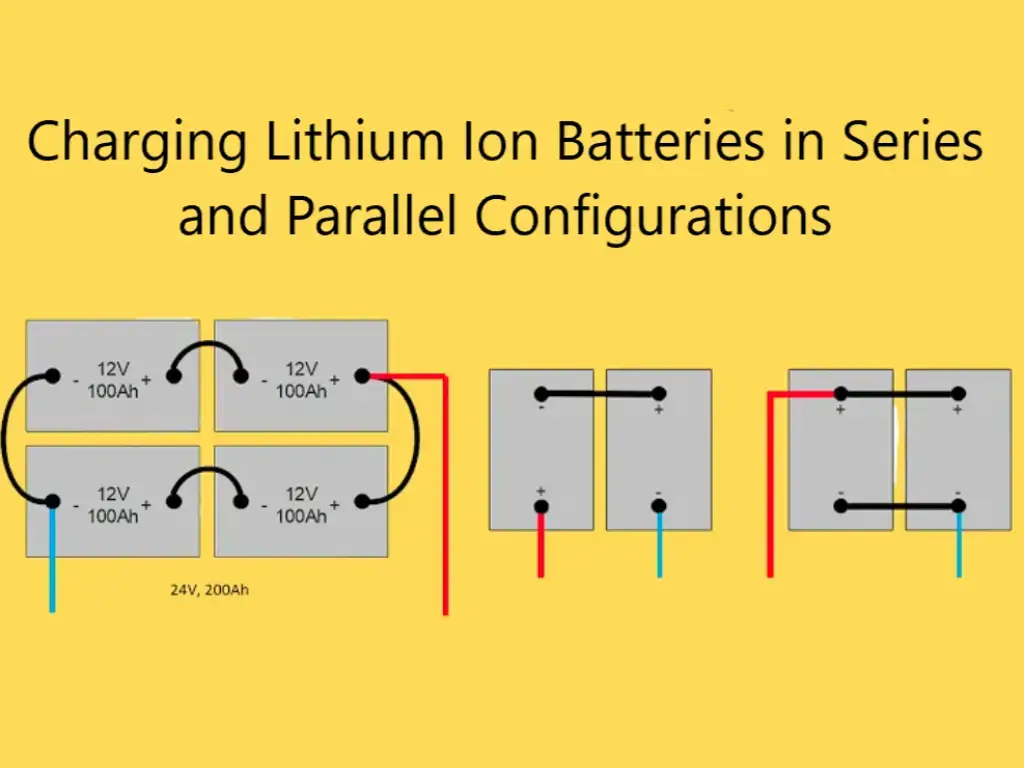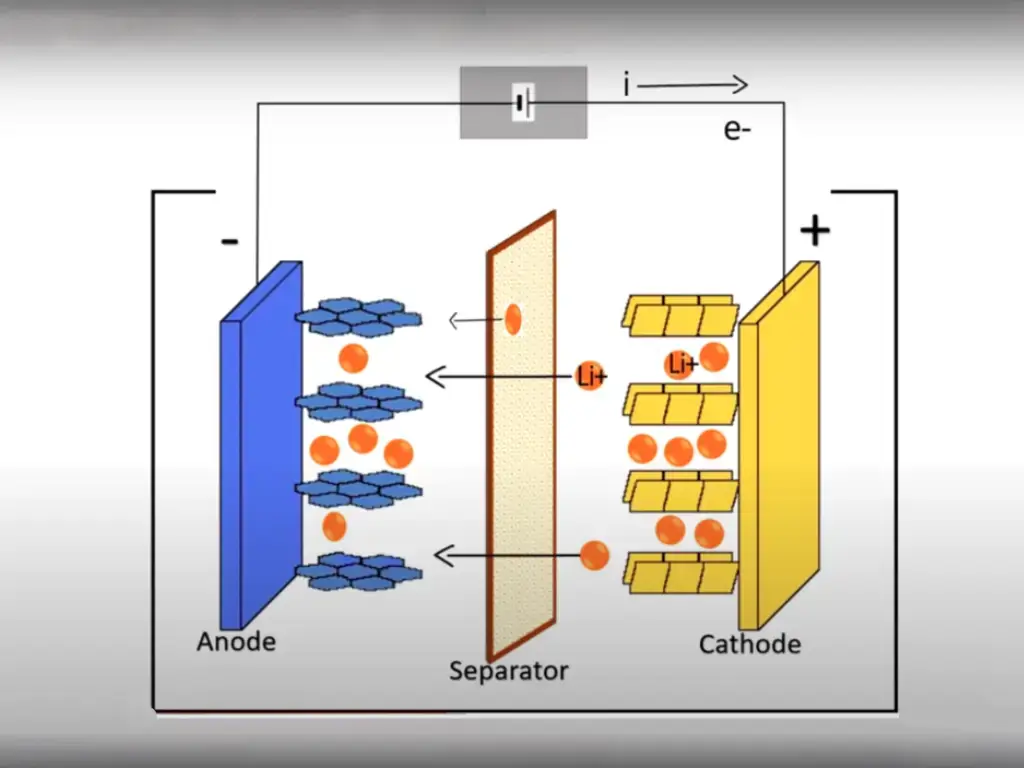With the continuous improvement of people’s living standards, commuting to and from getting off work has gradually become motorized. Due to the vigorous promotion of the country’s carbon neutral policy, when people buy new energy vehicles, they have to choose between the two technologies of lithium iron phosphate battery and ternary lithium battery. Industry insiders told us: to attach importance to battery life, Choose the ternary system for capacity and lightweight vehicles, and choose the lithium iron phosphate system for safety. In this regard, consumers urgently hope that people in the industry can give a practical answer from a technical point of view: Is lithium iron phosphate battery safe? First, answer from three aspects: material/structural stability, production process, and charge and discharge characteristics.
What is a lithium iron phosphate battery?
Lithium iron phosphate battery is a lithium-ion battery that uses lithium iron phosphate (LiFePO4) as the positive electrode material and carbon as the negative electrode material. LFP batteries have lower energy densities than other lithium-ion battery types, such as nickel-manganese-cobalt (NMC) and nickel-cobalt-aluminum (NCA), and operate at lower voltages.
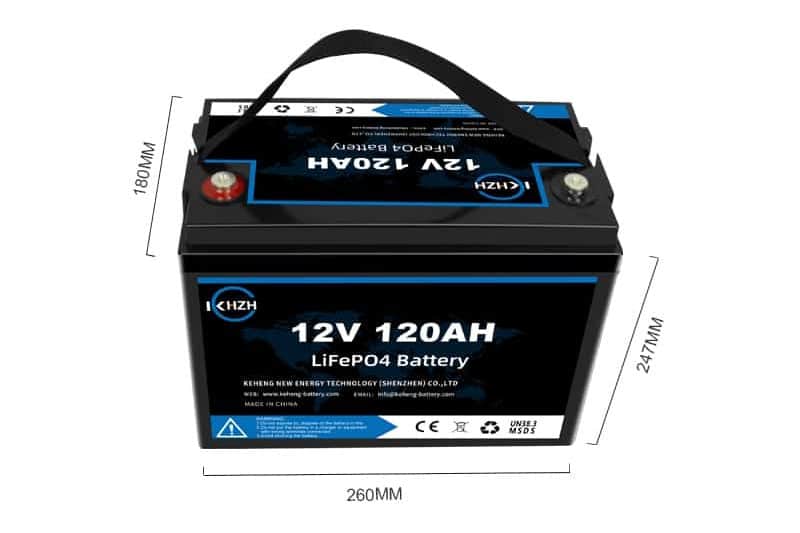
The safety of lithium iron phosphate batteries
Lithium iron phosphate is currently the safest cathode material for lithium-ion batteries. It does not contain any heavy metal elements harmful to the human body. It isn’t easy to precipitate oxygen in its olivine structure, which improves the stability of the material. The stability of the positive electrode material of a lithium iron phosphate battery determines that it has a stable charge and discharge platform. Therefore, the structure of the battery will not change during charging and discharging, will not burn and explode, and is still very safe even under special conditions such as short circuits, overcharging, extrusion, and acupuncture.
Advantages of lithium iron phosphate batteries
Lithium iron phosphate battery has the advantages of high working voltage, high energy density, long cycle life, good safety performance, low self-discharge rate, and no memory effect.

Application of lithium iron phosphate battery
Lithium iron phosphate batteries are widely used in home energy storage, solar lighting systems, vehicle use, utility-scale stationary applications, and backup power due to their low cost, high safety, low toxicity, and long cycle life.

Home Energy Storage
Due to their low production costs and high fire safety, Enphase has launched the LFP household storage battery. In 2021, the home end-user market had several vendors, including SonnenBatterie and Enphase. Tesla Motors continues to use NMC cells in its home energy storage products but switched to LFP for its utility-scale battery products in 2021.
Vehicle
when vehicles accelerate, such as forklifts, bicycles, and electric vehicles, require batteries with higher discharge rates, lighter weight, and longer life. These are the advantages of lithium iron phosphate batteries. 12V LiFePO4 batteries are becoming increasingly popular and are widely used as backup (household) batteries for caravans, motorhomes, or boats.
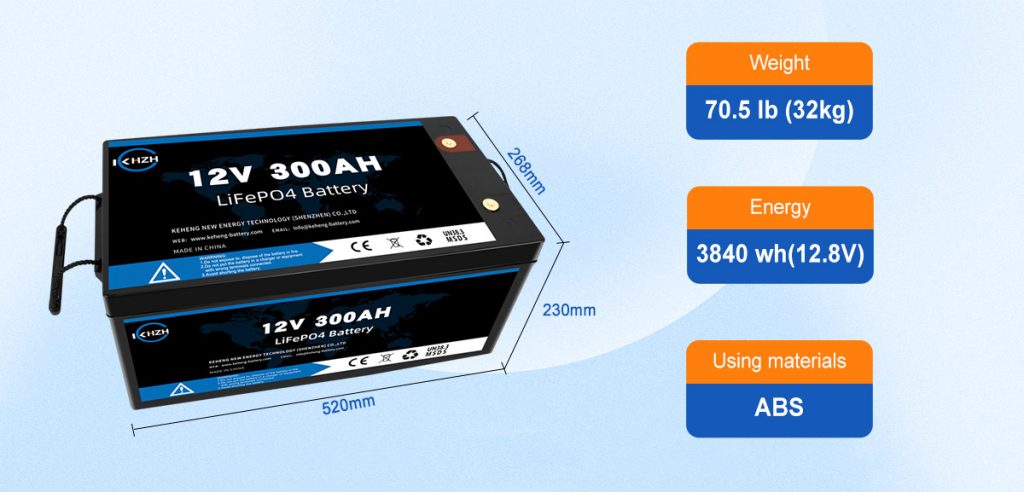
Solar Lighting System
Solar landscaping lighting primarily uses a single “14500” (AA battery size) LFP battery.
The higher (3.2 V) operating voltage of the LFP allows a single battery to drive the LED without circuitry to boost the voltage. Its increased tolerance to moderate overcharging (compared to other lithium battery types) also means that LiFePO4 can be connected to a photovoltaic cell without a circuit to stop the charge cycle.
Charging and discharging of lithium iron phosphate battery
Charging and discharging are the two basic working states of lithium batteries. When the lithium iron phosphate battery is charged and discharged, because the oxidation ability of iron ions is not strong, oxygen will not be released, and it is naturally challenging to undergo redox reactions with the electrolyte, which makes the lithium iron phosphate battery charge and discharge process in a safe environment. Not only that, lithium iron phosphate batteries are difficult to undergo violent redox reactions during high-rate discharge, even during overcharge and discharge. At the same time, after lithium is deintercalated, the crystal lattice changes so that the final volume of the unit cell (the smallest constituent unit of the crystal) will shrink, which offsets the increased volume of the negative carbon electrode during the reaction. Therefore, the lithium iron phosphate battery can be charged and discharged. The stability of the physical structure is maintained, and the hidden danger of battery explosion caused by the increase in volume is eliminated.
The production process of lithium iron phosphate battery
The production process of lithium iron phosphate batteries is roughly the same as that of other lithium battery varieties, and its core processes include batching, coating, rolling, sheeting, and winding. In the batching process, the electrical conductivity of lithium iron phosphate material is relatively poor, so the particles are generally made smaller. The objective effect of this is that the internal arrangement is more uniform, which promotes the formation of a balanced voltage platform that can be maintained during work. The condition of the battery is stable.
Lithium Iron Phosphate batteries are also designed to be highly safe for use in extreme temperatures:
•Built-in safety fuse
•Explosion-proof steel cover
•Excellent over-temperature protection
In addition, during the design phase of lithium iron phosphate batteries, they experienced the following:
•Impact test
•Overcharge test.
•Short circuit test
•Open circuit test
•Temperature test
•Drop test
•Forced internal short circuit test
•Low voltage test.
Only after satisfactory results are obtained do the cells go into mass production.

How safer are lithium iron phosphate batteries than other lithium batteries?
Phosphate batteries have an excellent chemical and mechanical structure that will not overheat to unsafe levels. As a result, safety is improved compared to lithium-ion batteries made with other cathode materials. This is because the charged and uncharged states of LiFePO4 are physically similar and highly robust, which allows the ions to remain stable during oxygen flux that accompanies charge cycles or can fail. Overall, the iron phosphate-oxide bond is stronger than the cobalt-oxide bond, so when the battery is overcharged or physically damaged, the phosphate-oxide bond remains structurally stable; whereas in other lithium chemistries, the bond starts to break down and release too much heat, eventually leading to thermal runaway.
Lithium phosphate batteries are not flammable, an important characteristic when mishandled during charging or discharging. They can also withstand harsh conditions, whether cold, scorching heat or rough terrain. They will not explode or catch fire in a hazardous event such as a collision or short circuit, significantly reducing the possibility of injury. Lithium iron phosphate may be your best choice if you are choosing a lithium battery and anticipate use in dangerous or unstable environments. It’s also worth mentioning that lithium iron phosphate batteries are non-toxic, non-polluting, and contain no rare earth metals, making them an environmentally conscious choice. They will not explode or catch fire, significantly reducing the chance of injury.
Factors affecting the safety of lithium iron phosphate batteries?
Although lithium iron phosphate batteries are entirely safe in regular use, in extreme cases, some accidents may still occur. The following are some factors that affect the battery.
Overcharge
No matter what type of battery it is, overcharging is always a big problem. When the battery is charged for a long time and reaches the maximum voltage, continuing to connect to the power supply will force the battery to charge, resulting in internal heat generation. Suppose the battery is kept insulated for a long time in the charging state. In that case, the temperature will gradually increase, and heat energy will accumulate, which may cause the battery to catch fire.
Battery Material
The material preparation also plays an essential role in the thermal and structural stability of the battery. There is iron oxide inside lithium iron phosphate, so the iron element in the battery must be divalent. Battery manufacturers must take extra care during the sintering reaction.
Battery Storage Area
When the battery is charged, a small amount of heat will inevitably be generated, but ensure the area where the battery is placed is non-flammable to avoid accidents. Even the slightest heat can cause the site to catch fire if the battery is charged in a volatile region.
Whether lithium iron phosphate batteries will “explode” depends first on whether there are conditions for an explosion in daily scenes. Generally speaking, an explosion will only occur if the four states of sufficient oxygen, the concentration of combustible substances that meet the standard, the source of ignition, and the limited space are met simultaneously.
How to prevent battery problems?
Suitable Charger
Using a suitable charger can effectively avoid overcharging the battery. According to the battery type and rated voltage, you can choose the charger provided by the manufacturer to prevent your battery from overcharging and heating, and always ensure that the battery is in a stable state of charge.
Suitable Temperature
Battery storage also has specific requirements on temperature. The optimum temperature range is generally between 15 °C and 30 °C, and this temperature value changes with the storage time. Also, after prolonged use, the battery may generate some heat. Please make sure to charge the battery after it has cooled down.
Premium battery management system (BMS)
The battery management system can intelligently manage and maintain each battery unit, prevent the battery from overcharging and over-discharging, prolong the service life of the battery and monitor the state of the battery.
A good BMS will stop overcharging and charge each battery individually. A BMS can detect if a battery is giving inaccurate readings or failing, preventing any explosion or fire.
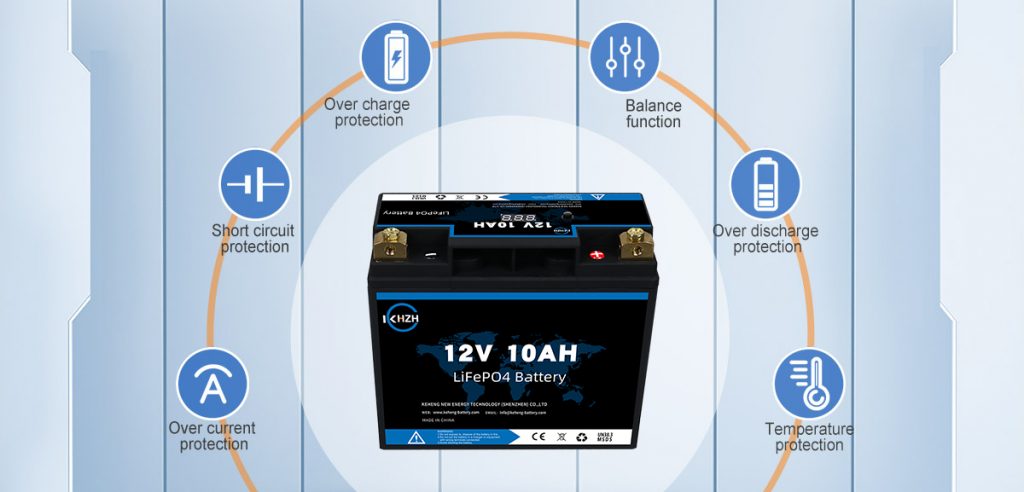
Quality Manufacturer
Lithium iron phosphate batteries produced by high-quality manufacturers can significantly improve the pass rate of battery production.
For the best battery solutions, be sure to check out KHLiTech. KHLiTech is a lithium iron phosphate battery manufacturer that can independently develop, produce and sell, aiming to provide the best one-stop battery energy storage solution for users worldwide.
If you want to know more about lithium iron phosphate batteries, please contact us. We will be happy to provide you with professional help.

